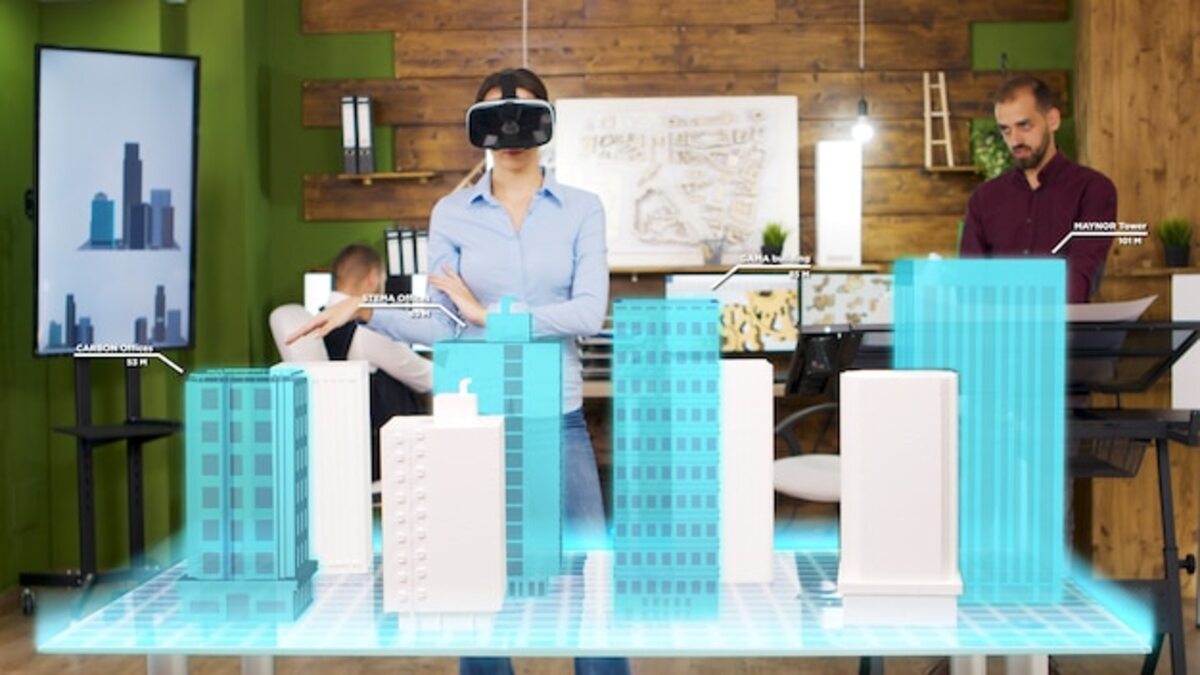The role of technological innovation in real estate valuation

Real estate valuation has evolved significantly in recent years, and technological innovation has become a key ally in maximizing property value. In this article, we will explore how digital tools, data analysis, and emerging trends are transforming the real estate market in Costa Rica. From the way we buy to how we assess the value of a property, technology is redefining what it means to invest smartly in real estate.
1. The influence of Big Data on property valuation
The influence of Big Data on property valuation has revolutionized the way real estate prices are analyzed and determined. Through the collection and massive analysis of data, professionals in the real estate sector can access valuable information about market trends, consumer preferences, and historical behaviors. This allows for the construction of more accurate predictive models that not only consider traditional factors like location and size but also emerging variables such as the impact of social media or demographic changes. Thus, Big Data becomes an essential tool for optimizing purchasing and investment decisions.
Additionally, the capability of Big Data to integrate multiple sources of information allows real estate agents to offer more accurate and personalized valuations. For example, by analyzing data on recent sales in specific areas along with local economic indicators, it is possible to identify opportunities that were previously overlooked. This not only benefits buyers by enabling informed decision-making but also helps sellers establish competitive and realistic prices that maximize their profitability. In an environment where more and more people seek to invest in properties based on data-driven analysis, the use of Big Data is established as a key component in modern real estate valuation.
2. Digital tools that are revolutionizing the real estate sector
Digital tools have transformed the real estate sector by offering innovative solutions that facilitate both the buying and selling of properties. Online platforms allow buyers to explore a wide range of properties from the comfort of their homes, using advanced filters to find exactly what they are looking for. Additionally, virtual tours and 3D walkthroughs provide an immersive experience that saves time and resources, enabling interested parties to explore multiple options without the need for physical travel. This accessibility not only expands the market reach but also improves efficiency in the decision-making process.
Data analysis is another crucial component that has revolutionized real estate valuation. Analytical tools allow agents and potential buyers to obtain accurate information about market trends, historical prices, and future projections. Thanks to big data, patterns that were previously difficult to discern can be identified, facilitating a more informed assessment of the actual value of properties. Furthermore, these technologies help personalize offers and marketing strategies, better aligning the seller's expectations with the buyer's needs and optimizing the overall business process.
3. The impact of virtual reality platforms on property visits
Virtual reality platforms have revolutionized the way potential buyers and renters experience properties. Through immersive virtual tours, users can explore every corner of a home without the need to physically travel. This technology not only saves time but also allows interested parties to visualize the space more effectively, overcoming the limitations of static photos or written descriptions. As a result, property visits become more efficient, which can lead to quicker and more informed purchasing decisions.
Additionally, virtual reality offers a competitive advantage for real estate agents and developers by enhancing the presentation of the property. By providing an interactive and realistic experience, interest in properties is increased, which can translate into a rise in their valuation. Buyers can appreciate details such as the layout or natural lighting more clearly, which is crucial for assessing the true potential of a property. In this context, adopting technologies like virtual reality not only represents an innovation; it is a strategic step towards a more dynamic real estate market that meets the needs of the modern consumer.
4. Predictive analysis: anticipating the future of the real estate market
Predictive analytics has become an essential tool for investors and real estate professionals, as it allows them to anticipate market trends and behaviors. Through advanced algorithms and statistical models, it is possible to analyze large volumes of data that include everything from historical price patterns to socioeconomic, demographic, and environmental factors. This ability to foresee the future not only helps investors make informed decisions about buying and selling but also enables them to identify opportunities before they become apparent to the rest of the market. Moreover, the use of technologies such as artificial intelligence and machine learning further enhances the capabilities of predictive analytics. These tools can process information in real-time and adjust projections based on dynamic variables. For example, a change in zoning regulations or the development of new infrastructure can have an immediate impact on the valuation of certain areas. With a data-driven approach, players in the real estate market can quickly adapt to these changes, thereby maximizing their profitability and minimizing risks associated with their investments. Ultimately, anticipating the future has become a strategic key for those looking to stand out in such a competitive environment as the current one.
5. Sustainability and innovation: a new standard for added value
Sustainability has become an essential element in real estate valuation, driving a new standard that integrates technological innovation and respect for the environment. Properties designed with sustainable practices not only offer a lower ecological impact but also attract a more conscious buyer base. Technologies such as solar panels, water recycling systems, and eco-friendly building materials are gaining traction in the industry, allowing owners to increase the value of their investments. This sustainable approach goes beyond energy savings; it represents a lifestyle philosophy that is increasingly valued by consumers.
Furthermore, technological innovation is facilitating the implementation of sustainable solutions through the use of analytical data and digital platforms. Developers can access accurate information about market trends and consumer preferences to create projects that respond to these ecological demands. For example, computer-aided design (CAD) allows for the optimization of space and resources in new constructions, while mobile applications help buyers and investors quickly assess the energy and environmental performance of a property. In this context, the fusion of sustainability and innovation not only improves urban quality of life but also sets a new standard for real estate appreciation that benefits both the environment and the owner.
6. How artificial intelligence optimizes investment decisions
Artificial intelligence (AI) has emerged as a fundamental tool in the realm of real estate investment decisions, enabling investors and developers to make more informed and strategic choices. By analyzing vast amounts of data in real time, AI can identify market trends, assess potential risks, and predict changes in property values. This ability to process information rapidly not only increases accuracy in asset valuation but also allows investors to adjust their strategies in response to market fluctuations, ensuring better risk management and thereby optimizing their return on investment.
Additionally, AI-driven platforms offer predictive analytics that facilitate the identification of emerging opportunities across different segments of the real estate market. With advanced algorithms that examine factors such as consumer behavior, demographic growth rates, and local economic patterns, investors can uncover areas with high appreciation potential before they become noticeable trends. This proactive capability not only enhances decision-making but also drives more sustainable investment aligned with current market dynamics, making those who utilize these technologies more competitive in an increasingly complex and interconnected environment.
7. Technological trends that will shape the future of the real estate sector
The technological trends shaping the future of the real estate sector are diverse and transformative, and their impact is felt at every stage of the process of buying, selling, and managing properties. One of the most notable innovations is augmented and virtual reality, which allows potential buyers to take immersive tours of properties from the comfort of their homes. This technology not only saves time but also expands market reach by enabling people located in different regions or countries to visualize properties without the need for physical relocation. Furthermore, these interactive experiences enhance the presentation of the properties, making them more attractive to potential buyers.
Another key trend is the advanced use of data analysis and artificial intelligence (AI) to evaluate and predict the behavior of the real estate market. Digital platforms can now collect and analyze large volumes of information on prices, location, property features, and consumer preferences. This allows investors to make informed decisions based on accurate projections about the future valuation of a property. Likewise, AI-based tools help personalize offers and optimize marketing strategies, thus ensuring a more effective connection between sellers and interested parties. Together, these trends are not only redefining how real estate transactions are conducted but also driving greater transparency and trust in the market.



